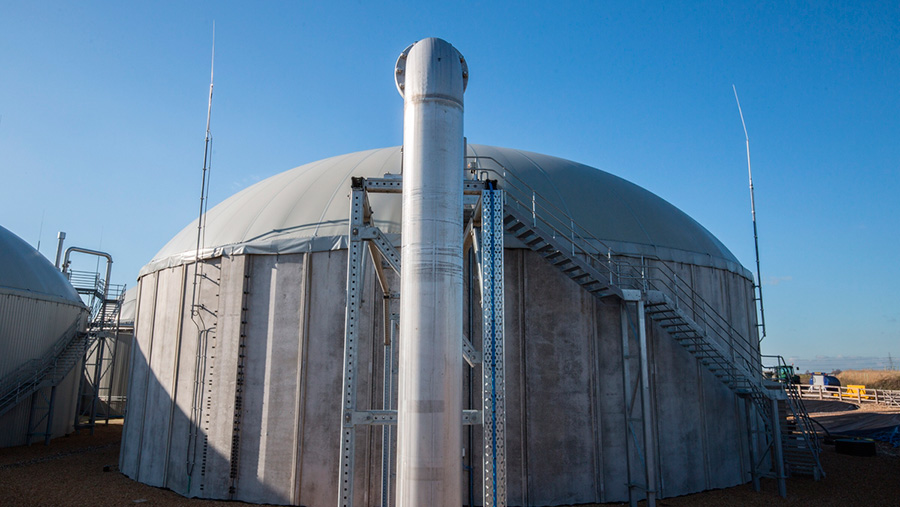‘Proposed cuts to AD support threaten future of farm biogas’
 © Tim Scrivener
© Tim Scrivener Farm leaders have expressed deep disappointment over proposed cuts to Feed-in Tariffs (Fits) for anaerobic digestion (AD) plants, which they warn sound alarm bells over the future of farm biogas installations.
The Department for Energy and Climate Change (Decc) has issued a consultation which says from January 2017 tariffs for plants under 500kW will be cut by 27%.
Meanwhile, the tariff for plants over 500kW will disappear completely, moving from 7.8p/kWh to zero. Tariffs for existing installations will remain unchanged.
See also: Question mark hangs over AD plant potential
Yet again, this government seems determined to throttle the life out of the emerging renewable energy market Jonathan Scurlock, NFU
The government also wants to minimise the use of crops as a feedstock for AD plants, so is looking at limiting Fits payments to electricity generated from biogas derived from waste and residues.
Jonathan Scurlock, NFU chief adviser on renewable energy, said the union would be fighting the proposed cuts, which came on top of slashed support for the solar and biomass industries.
“Yet again, this government seems determined to throttle the life out of the emerging renewable energy market.”
Dr Scurlock pointed out that only two years ago the Fits for small- and medium-scale AD plants were 14-15p/kWh, nearly three times the rates proposed from 2017.
But there had been no corresponding reduction in capital costs.
“The multiple environmental and soil management benefits from widespread deployment of on-farm AD will be lost, including the huge potential for avoiding farmyard methane emissions from manure and slurry – a bit of an own-goal for Decc, given that this is a powerful greenhouse gas,” he said.
Charlotte Morton, chief executive of the Anaerobic Digestion and Bioresources Association, said the consultation did nothing to address Decc’s fundamental lack of ambition for AD and community-scale renewables.
“Instead, it proposes restrictions to plant sizes and feedstocks that will make it even harder to deploy viable AD plants using waste, crops or agricultural residues.
“Removing support for new plants above 500kW is completely unjustified and will kill off projects which could otherwise have delivered Decc’s objectives while representing good value for money.”
In the introduction to the consultation, Decc said it did not expect the implementation of the proposed changes would adversely affect the UK’s ability to meet its renewable electricity and carbon reduction targets.
“The UK is making good progress towards the EU target of 15% final energy demand from renewables by 2020 and the pipeline of projects towards 2020 remains healthy.”
